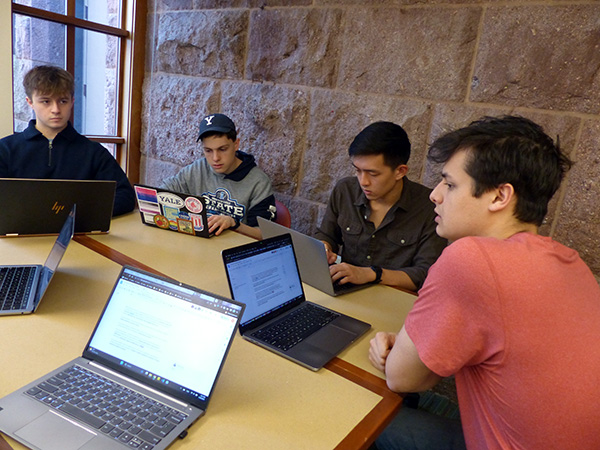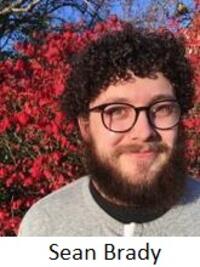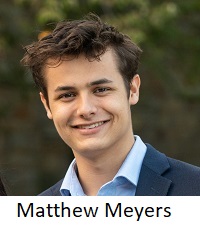New ISPS Grant Program Sparks Innovative Research by Yale Undergraduates

When climate activists threw soup at Van Gogh’s famous “Sunflowers” painting and glued themselves to its London gallery wall in 2022, some of Sean Brady’s friends thought the stunt was ridiculous and likely counterproductive.
Wouldn’t attacking a priceless piece of art history — even if it was safely behind glass — turn people against the protesters’ stated goal of protecting the planet from the climate impacts of burning fossil fuels?
Brady, then a community college student in Nashville, Tenn., had read some research indicating that similar protests might not create such a backfire effect. Instead, they can generate attention so that people consider the issue, even if they might not approve of the specific provocative act.
Now a rising junior political science major at Yale and a Dahl scholar with the Institution for Social and Policy Studies (ISPS), Brady proposed an experiment to ISPS faculty fellow Joshua Kalla. Would showing study participants a disruptive climate change protest produce a backfire effect and result in a lower likeliness to support climate change legislation?
With Kalla’s guidance, Brady submitted a proposal to ISPS’s new research grant program for undergraduate students. This spring, he became one of four Yale College students to receive funding for their projects, which will begin to produce findings in the next academic year.
“The great thing about this program is that everyone who heard about my topic and my passion about it and wanted me to run with it,” Brady said. “The enthusiasm was amazing.”
In addition to Brady’s project, ISPS has funded rising junior Hector Miranda Plaza, who is analyzing legislative voting patterns in the Puerto Rican Assembly to see how they have changed before and after major protests in 2019; rising junior Harvey Rainwater, who is researching Swiss voter turnout patterns and public attitudes toward digital voting infrastructure; and graduating senior and Dahl scholar Matthew Meyers, whose group project is investigating the effectiveness of an open-source technology called Polis to reach consensus among large groups of people on policy opinions.

“At ISPS, people come out with really interesting topics that get presented all the time,” Brady said. “I realized I wanted to do that. And there were no barriers I’ve had to cross to get going. They just want people to do the research and uncover cool, consequential insights about the world.”
Kalla, an associate professor of political science who graduated Yale with a B.A. and an M.A. in 2014, appreciates the value of supporting students early.
“The reason I went into political science and got my Ph.D. is because I was exposed to research as an undergrad,” Kalla said. “This new ISPS funding allows more students the opportunity to develop their own questions and collect and analyze data, helping them explore and shape their academic and professional careers.”
He praised the breadth of the first crop of student grantees for employing cutting-edge research methods to answer questions of broad interest to political scientists and for displaying best practices.
“For example, in Puerto Rico, politics are understudied because there is a lack of digital data,” Kalla said. “For his study, Hector is not only answering interesting, substantive questions but also digitizing voting records and making the data available for other scholars. This is a public good and something everyone should be doing.”
Meyers worked with Kalla and ISPS Director Alan Gerber, Sterling Professor of Political Science, to create funding for group and individual projects with ISPS’s Democratic Innovations program. Democratic Innovations aims to identify and test new ideas for improving the quality of democratic representation and governance.

“I know the impact I want to have in my career is making democracy work better in the 21st century,” Meyers said. “We’ve seen in America and around the world that democracy is struggling. A lot of people are losing faith in it. Beyond that, it’s not creating policies that are up to the task of the big problems of today. What I want to focus on is finding electoral reforms that can adapt democracy and self-government for these challenges.”
After generating the study’s results, Meyers will pass on the data and responsibility for completing and building upon the project to Beata Fylkner, a rising junior and member of the Democratic Innovations Student Research Group.
In addition to the undergraduate research fund, ISPS awarded grants this spring to 24 faculty members, graduate students, and fellows in support of Democratic Innovations projects, conferences, field experiments, and surveys.
“We are thrilled with the quality and quantity of proposals we receive at ISPS across the social sciences, from students just beginning their journeys to seasoned scholars building a robust body of knowledge,” Gerber said. “We are proud members of a thriving research community committed to understanding the critical challenges we face so that we might formulate democratic, data-based solutions.”
Yale undergraduate students interested in applying for research funding in political science can contact Joshua Kalla at Josh.kalla@yale.edu.
Visit our website for details on research funding for graduate students, postdoctoral fellows, and faculty members.
“People on campus might not realize how many opportunities there are to get involved at ISPS,” Meyers said. “ISPS wants student-driven projects, and they are open to creative ways to engage with students. If it looks like your idea isn’t covered yet, you can go ahead and propose it and see where it goes.”